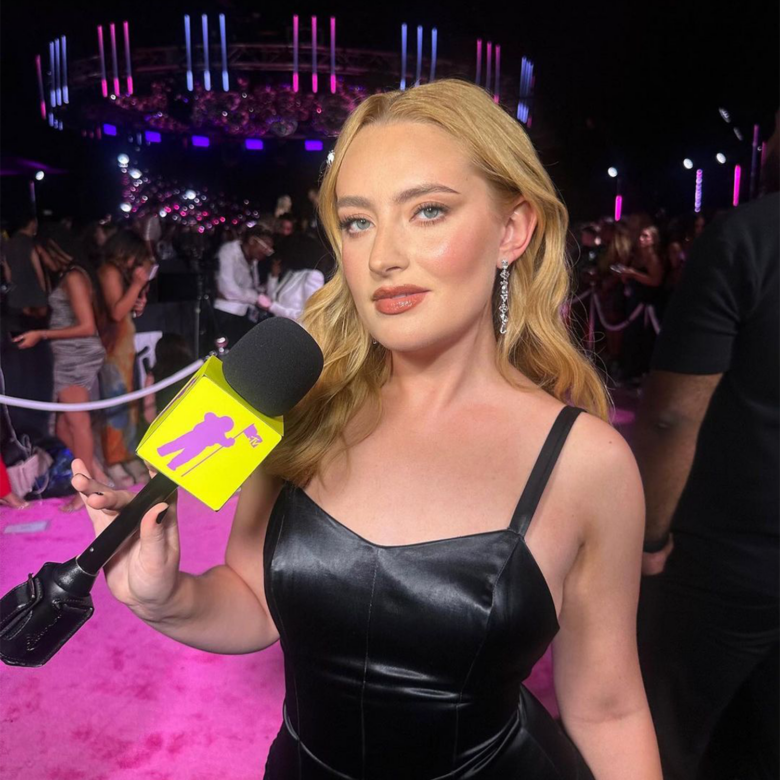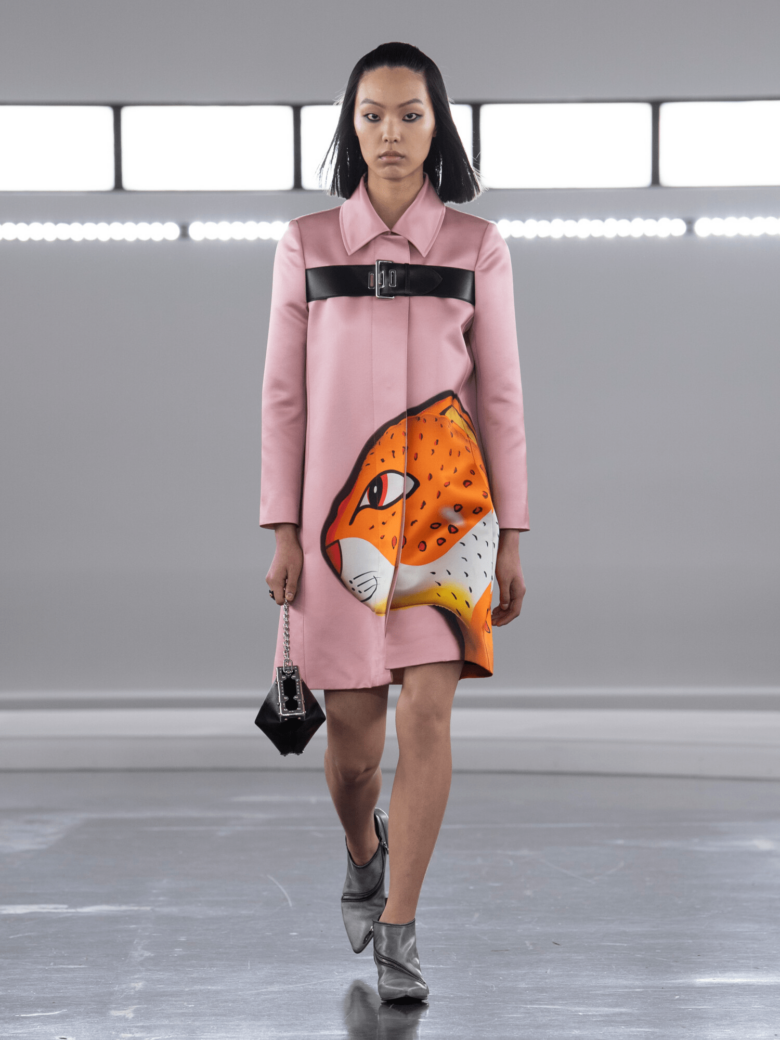Gus Dapperton: A new album, new image, and new era for the alt-pop star
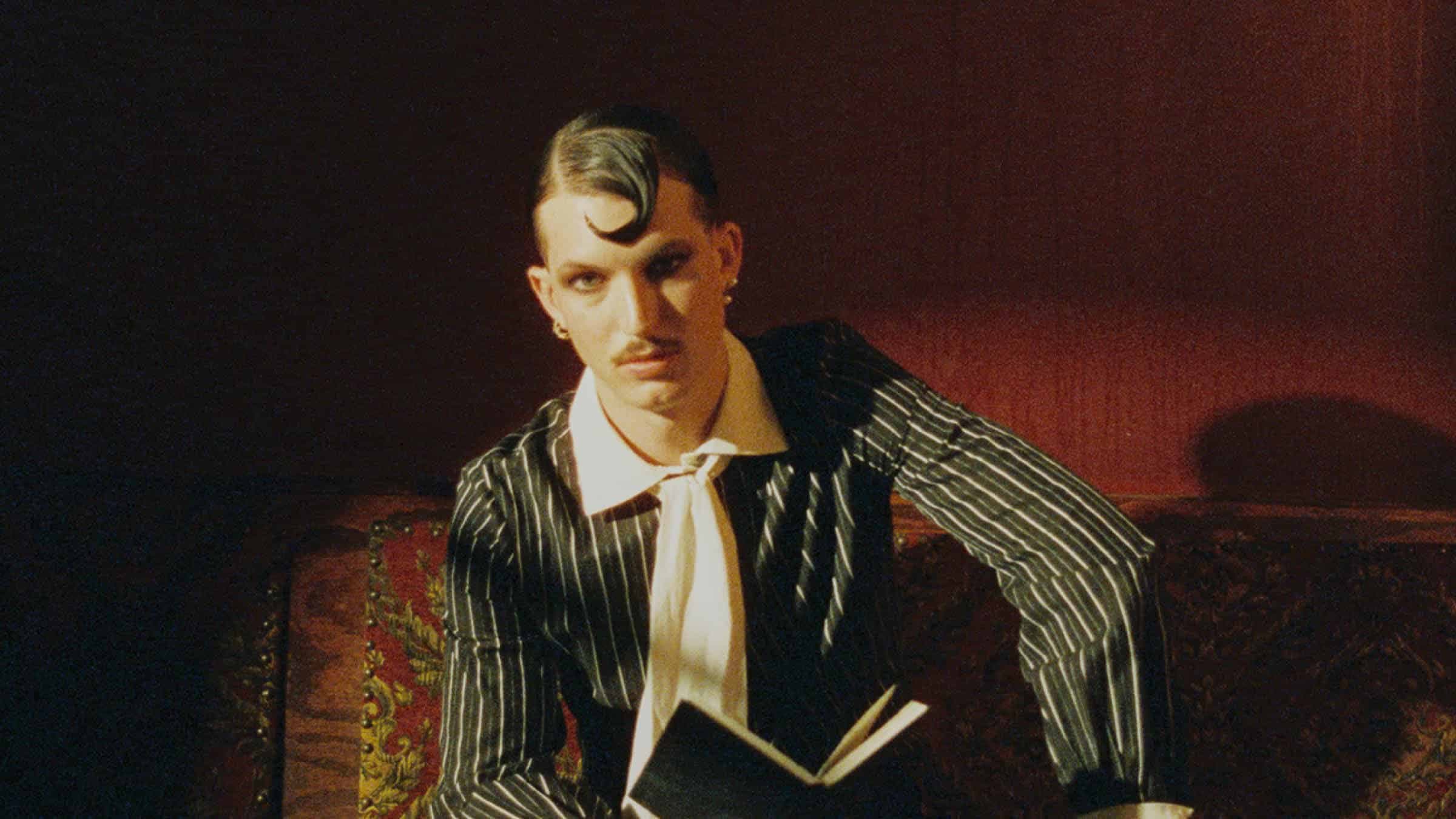
Gus Dapperton takes his time. He ruminates upon questions with ease, picking precise wording that conveys almost exactly what he thinks. The 26-year-old from New York is sitting on a balcony in Los Angeles, the blue sky reflecting in his sunglasses, his painted nails making an appearance every time he rubs his face to think even harder. But it’s not just in his interviews that he values gradual reflection in order to say something that he truly believes, it’s well within his music too.
It’s been three years since his last musical offering to the world. His album Orca landed in 2020, right in the middle of a world gone to shit. And he says, candidly, that it was a deep place for him, that Orca was dissecting some darker and more difficult-to-deal-with experiences: “Orca was really personal, and it was very self-reflective about other people in my life, and it was all about healing and hurting, healing from being hurt, and people helping each other,” he says.
But there was also no doubt some musical joy during that time as well. His feature on Benee’s ‘Supalonely’ hit hard all over TikTok the same year, becoming one of the first OG hits on the platform, alongside the likes of Powfu’s ‘Deathbed’ and Sales’ ‘Chinese New Year’. Dapperton’s voice is now embedded in 2020 covid nostalgia for a time when none of us really knew what we were doing.
His and Benee’s creative relationship didn’t by any means live and die three years ago, in fact, the pair got back in the studio as Dapperton sat down to write his upcoming album, Henge (July 7th). Their latest collaboration, a single from the upcoming project entitled ‘Don’t Let Me Down’, introduces us to Dapperton’s new world that he has spent months creating, one that combines various time periods, sounds and aesthetics with the overall aim, as he says, for us to place our own experiences onto in order to feel seen in some way by his music.
His single ‘Horizon’ and accompanying theatrical video was a first glimpse at this world, which pulls inspiration from 80s music, prohibition dress, and makeup that’s representative of those times. As this new era of Gus Dapperton falls upon us, we sat down with the singer-producer-performer to find out what it means to him…
Hey Gus! How’s LA treating you?
I really like LA when I have something to do, but when I have nothing to do, I disassociate. I feel like I feel trapped. I don’t think I could live somewhere where the weather is nice every day. I feel like I have to be brought down to reality.
Creatively, it must feel pretty different from New York, right?
There are definitely more writers and producers in LA than in New York. I think there are not a ton of writers and producers to work with whose thing it is to have sessions with people. There’s way more people out here for that. I have a home studio, and most of the time, I produce and write my own music. I was lucky enough to work with some other writers and producers on this album, but generally, I still am producing my own stuff. I don’t really feel like a need to come out here for that reason as much.
Do you think you perhaps favour New York more because it allows you to keep some more ownership over your work?
Yeah, a bit. I’ve definitely tried to come out here and work with other people and find a groove. What I’ve found is that I still very much so like being in front of the computer for most of it, just because I have a lot of ideas on what I want to do with the production, and I think I realise after doing a lot of sessions that’s something I still am pretty keen on doing is being the producer and being in front of the computer and stuff. After I realised that, there’s just not much of a need to come out here, and honestly, I’m a bit more inspired by New York when it comes to writing, and sometimes when I’m out here, I start writing things that sound like I’m trying too hard to make something that feels like the environment around me and it just doesn’t end up sounding that good.
Onto the music… It’s been three years since Orca. How do you think you have developed since then?
Orca was really personal, and it was very self-reflective about other people in my life, and it was all about healing and hurting, healing from being hurt, and people helping each other. I think my outlook was a lot more casual and honest. I’d say a lot of that music stems from depression and like stress and anxiety. But then, this one is a bit more of a concept album than Orca. Whereas I’m trying to tell this story from start to finish, with the first song being ‘Sunset’ and the last one being ‘Sunrise’. It’s more of this fantastical world that I’m trying to convey, and it’s a big metaphor for the internal war between seeking out chaos, seeking change and freedom, and craziness and like how we all have those two sides. And then the other side is about really wanting health and safety and routine.
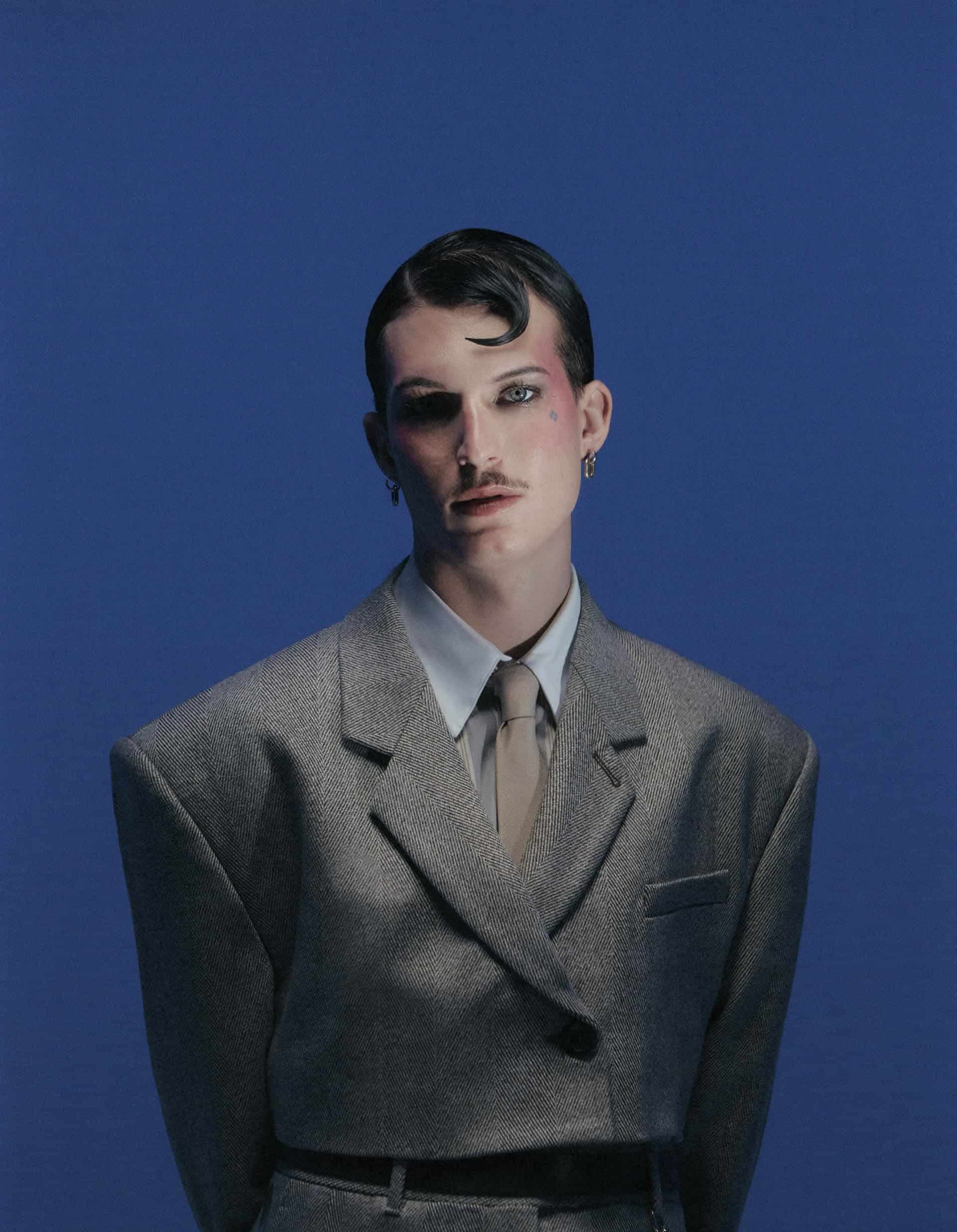
Where does that internal battle come from? Is it the effects of being in your 20s, maybe?
I think a little bit, yeah. I think after Covid I was feeling this a lot after being cooped up for so long. I was super introverted in high school, and I never went out, went to parties, never really socialised. I wouldn’t even say ‘hi’ to people in the hallway. And then, when I started making music and going to the city and meeting people through music and art and all that, I started becoming a bit more social, and I really started to love being social. I would get this adrenaline feeling because I’m always nervous and shy about talking to people.
When quarantine was over, I felt like I was seeking out a lot of chaos, and I was going out a ton and trying to reintegrate into society, how I was before. I was really uninspired to make music. I was not one of those people who could make stuff during that time super well. So I just felt like I was looking for something that wasn’t really there. That’s the part that was seeking out chaos, and I’m seeking change and freedom and trying to figure it out.
Before our interview, I was sent a video that was still being edited for ‘Horizon’, and it had a load of your comments down the side. So you’re involved all throughout the music and the visuals – are you very hands-on when it comes to what you create?
Totally. I’ve always loved how the visuals come hand in hand with the music a lot of times when I’m making it. I’ll be thinking about what it’s all going to look like, all the colours, all the symbols, the style, the aesthetic. Beforehand, I definitely wanted the visuals to look a certain way for this project, and I still am directing a lot of the videos for this project. I think it’s important to me for people to associate the singer or the video with the songs. As soon as they come out, they can put a face to the sound. That’s something I’ve always loved when I was growing up, seeing people’s projects and attaching a face to the sound or attaching a look to the sound. For the ‘Horizons’ video it’s setting the scene for this world that I want to try to build into the other videos. I have this narrative I want to try to build out through the next bunch of videos as well.
Why this aesthetic?
I think for this record, the sound sort of informs the visuals. I was listening to a lot of Eighties synth sounds, and in ‘Horizons’ there’s a big synth lead, and in that first song, and in ‘Sunset’, there are crazy synths that were leaning more into an eighties sort of sound. I was thinking a lot about the eighties and about boxy suits like people wore on Wall Street…
Like Talking Heads…
Yeah. But I also don’t know why I was into this cabaret, 20s/30s, prohibition-era look. So I did this Flapper haircut along with makeup that’s representative of that time.
For the album, who were you listening to a lot of the time when writing it?
I was listening to a lot of new wave music from the Eighties. A lot of The Cure and Depeche Mode, New Order, The Smiths, a lot of David Bowie in terms of the way he conducts his albums, makes them feel like a story all the way through. With Orca, I was listening to a lot more nineties rock, like Radiohead, Smashing Pumpkins, and Oasis, but this one’s a bit more pop and dance-oriented, that eighties vibe.
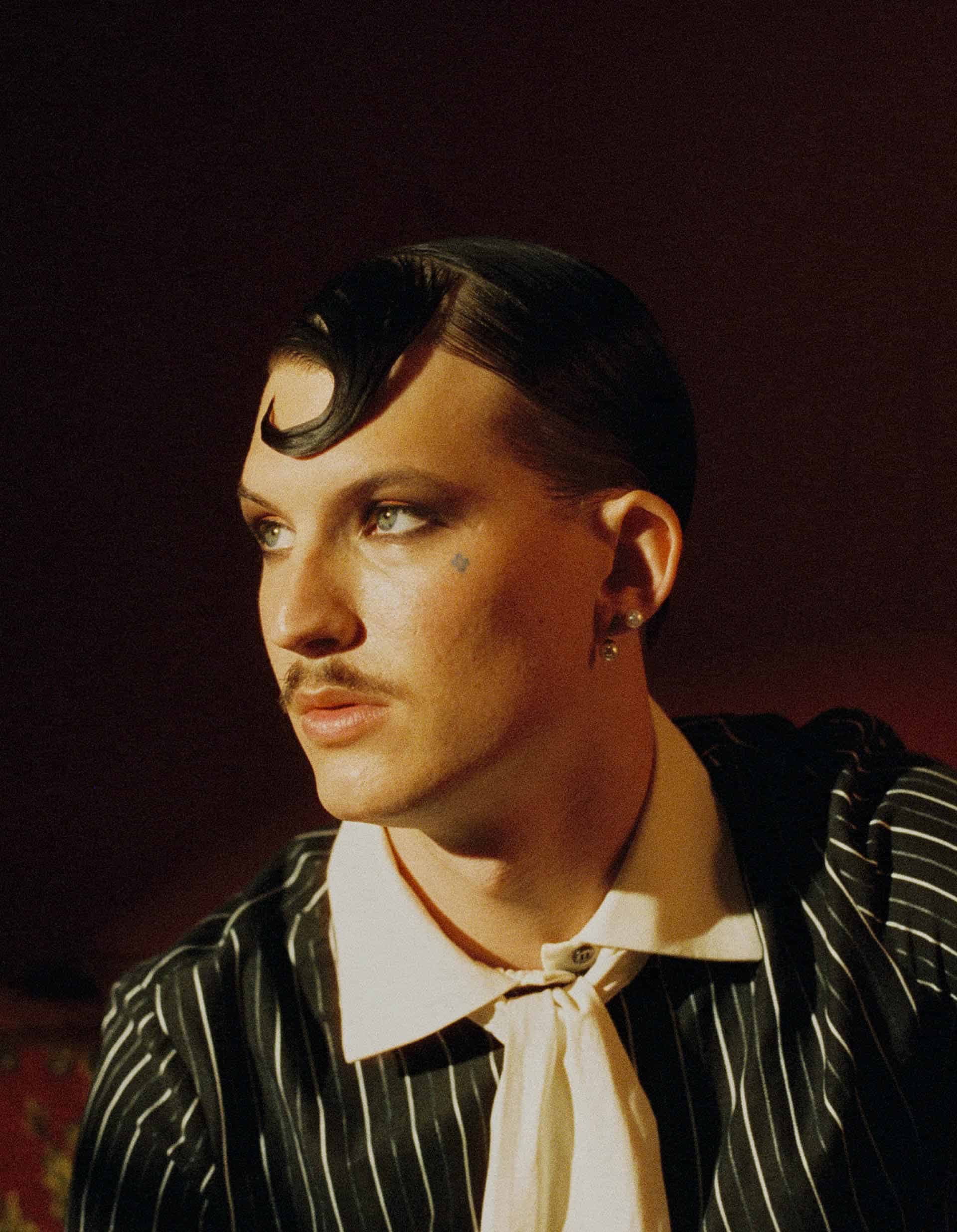
Speaking more technically, what have you learnt through the process of your new album?
On Orca, it was really just straight-up live instruments, a lot of acoustic guitar, piano, drums league guitar, all the way through. There wasn’t a ton of it, but it was a very organic sound. This album I’m playing a lot more with automation, building and things taking crazy turns and key changes. It is definitely very production heavy, whereas the last record was really just about the songwriting. I’ve also really been into choreography and dancing lately, and I wanted to incorporate that into the visuals and this album in general. I thought that [‘Horizon’] was a good song to showcase that.
When I saw you play in Manchester years ago, you did a cover of ‘This Charming Man’… it went down very well with the Mancunians.
We had been playing a Beatles cover usually, but we were like, ‘oh, it’d be so sick if we did ‘This Charming Man’ in Manchester. And we learned it a day or two before, and I was playing the bass on it, which is still really hard to sing on. And I think the crowd was hyped. We’ve definitely improved that cover.
And you’re working with Benee again!
We actually shot a video yesterday for that song. I hadn’t hung with Benee a lot at all. When we made ‘Supalonely’, we were sending it back and forth online. It wasn’t until a couple of years later that we met for the first time in LA. She’s really chill.
What was it like seeing each other in the flesh for the first time after just creating an OG TikTok hit?
I guess we felt like we knew each other, and wrote over the internet, and so it didn’t really feel like we were meeting for the first time, even though it was. But yeah, it was crazy…
Your commitment to production and visuals reminds me of a scorer, like, say, Atticus Ross and Trent Reznor – musicians who also make incredible scores for films. Is that something that you’d like to do in the future?
Totally. I like directing videos, being in film and watching movies in theatres. A bunch of my friends are all directors, cinematographers and writers. I would love to do anything in actual cinema. I would love to score something for sure. And that’s something I like is seeing the composer that scored the film and watching videos later on about how they made it and why they made it that way. So yeah, I definitely would love to do that.
And what do you want people to know about this album, or what do you want them to be thinking whilst listening to it?
I sort of write songs so that they’re outlines for people to copy and paste their own experiences onto. I try not to use specific pronouns and specific landmarks too much, just so that people can really feel like it’s about them. And although there’s a specific concept to me about this album from start to finish, I think everyone can take a song, just one song out of it, and it can stand alone regardless of the rest of the album. I always strive for that.
That’s interesting because does that then mean that what you create is no longer yours when you put it out?
Yeah, totally. All the time people will tell me their interpretations of the meanings because I never really put them out there that much. That’s also because my intention is that it means something to me, but my intention is that it can mean whatever else to anyone else. It could mean exactly what’s going on in that person’s life, even more than mine. And people can come up with all these ideas that I wasn’t intending for, but if you think it, you know, it’s right.
Well, that’s a great note to leave it on Gus! We can’t wait for the album to be out.
